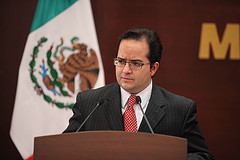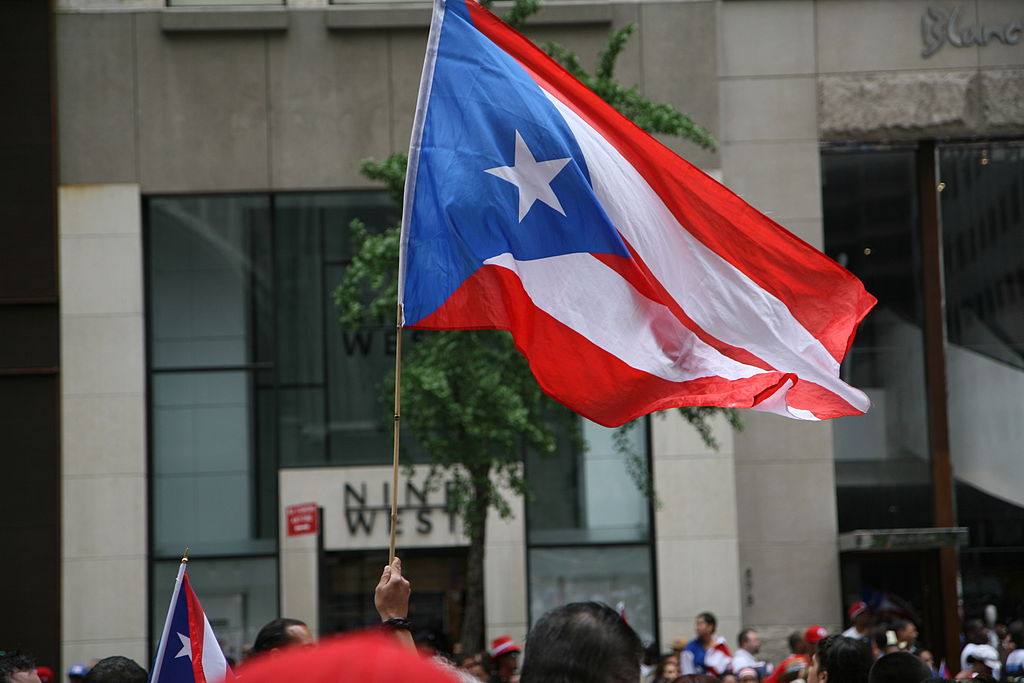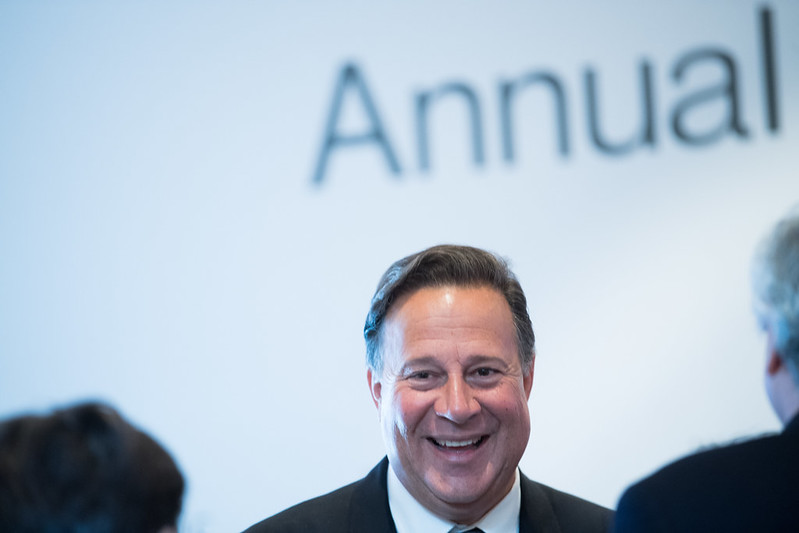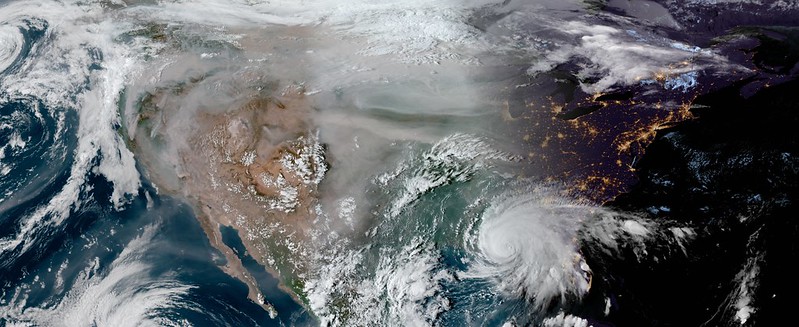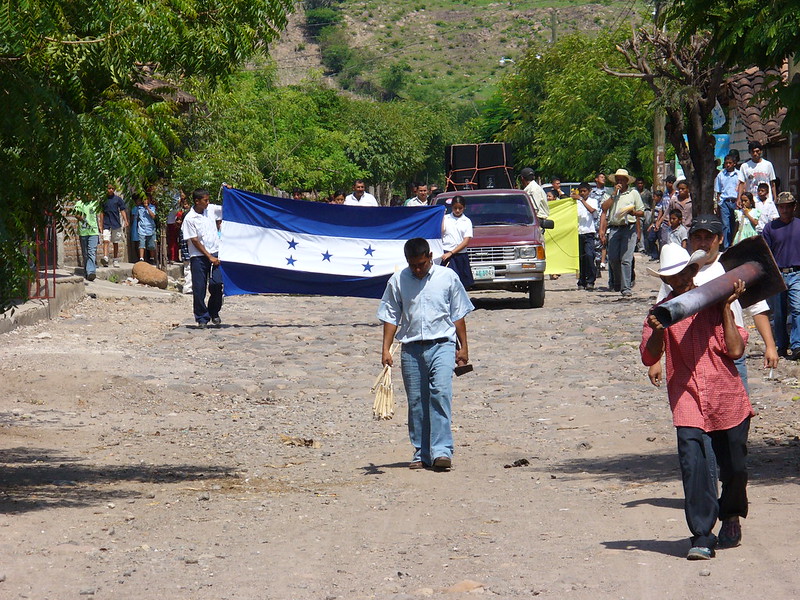
Latin America: Week in Review
Guatemala Sends Migrant Caravan Back to Honduras
October 5, 2020 By Staff
TODAY IN LATIN AMERICA
HONDURAS/GUATEMALA: Between three to four thousand Honduran migrants on Thursday arrived in Guatemala in a caravan after departing from San Pedro Sula on Wednesday. Most of the migrants did not provide Guatemalan immigration officials with the required negative coronavirus test result upon entry into the country. In response, Guatemalan President Alejandro Giammattei declared a “state of prevention” in areas near the countries’ shared border and deployed the army and police. By Saturday morning, approximately 2,000 migrants had been sent back to their country. The Guatemalan government said that the migrants sent back on buses and army trucks were “voluntary” returnees. Mexico also sent troops and immigration agents to its southern border, as some Honduran migrants continued on their journey north.
Meanwhile, Mexican President Andrés Manuel López Obrador speculated that the caravan may have been “organized” to get Mexico involved in the U.S. presidential elections, saying that he found it “strange” that the migrants mobilized their caravan so close to the November vote. Similar migrant caravans have formed in the past, including during the U.S. midterm elections. Honduran migrants leave behind political turmoil, violence, corruption, and poverty – conditions that have only been aggravated by COVID-19. Some estimates indicate that 300,000 jobs have been lost in Honduras’ formal and informal work sectors during the pandemic.
Headlines from the western hemisphere
SOUTHERN CONE
CHILE: Attempted murder charges were filed on Sunday against the police officer who pushed a protester off a bridge on Friday. Shocking footage shows the officer intentionally pushed the 16-year-old boy off a Santiago bridge during protests. The teenager lost consciousness after he fell over 22 feet into the Mapocho River face down, suffering head trauma and a broken wrist. The police alleged the boy lost his balance and fell as opposed to being pushed. Anti-government protests have been widespread in Chile since last year, resulting in at least 31 deaths and dozens of human rights violations by security forces.
ANDES
BOLIVIA: The seven presidential candidates for the Oct. 18 special election held the first all-party presidential debate in the country on Saturday after 18 years. Among the topics discussed, the candidates touched on the economy, employment, and social and political stability. The quality of the debate was so low that analysts commented that the politicians had “forgotten to debate.” A second debate was scheduled for Sunday night. The last time the Movement for Socialism (MAS) party participated in a presidential debate was in 2002, when Evo Morales first ran for office.
COLOMBIA: The president of Colombia’s transitional justice system, Patricia Linares, announced on Saturday that the former commanders of the Revolutionary Armed Forces of Colombia (FARC) sent a letter recognizing their responsibility in the homicides of six public figures between 1987 and 1995. Among the deaths recognized by the rebel group were the 1995 murder of a former presidential candidate and conservative leader, Álvaro Gómez Hurtado, and the 1998 assasination of retired general and former Defense Minister Fernando Landazábal Reyes. The confession by the former guerrilla commanders came as a surprise due to the attribution of several of the murders to other armed actors. Former President Juan Manuel Santos, whose government negotiated the peace agreement with the FARC rebels, said the letter was a “huge step” towards the truth and reconciliation of the country.
CARIBBEAN
CUBA: The fifth judge to have presided over the Sept. 11 war crimes tribunal at the U.S. Naval base in Guantanamo Bay, Cuba, stepped down on Friday. Marine Col. Stephen F. Keane, who was assigned to the case in mid-September, recused himself due to past government work in counter-terrorism and a personal tie to a victim of the 9/11 terrorist attack. Before recusing himself, however, Keane canceled all hearings pertaining to the case until 2021 and delayed the start of the trial until at least August of next year. Facing charges of terrorism and almost 3,000 counts of murder, the five defendants have long had their trial delayed, in part due to legal challenges their lawyers have presented in order to challenge prior statements they made while being tortured in CIA custody.
CENTRAL AMERICA
COSTA RICA: Hundreds of trucks were stranded on the border between Panama and Costa Rica amid protests against a potential agreement between Costa Rica and the International Monetary Fund (IMF). Thousands joined the blockades at strategic road points leading to tourist sites, borders, agricultural production areas, ports and airports that began on Wednesday. Costa Rican authorities forcibly lifted the blockades at the main border crossing with Panama on Sunday. The protests, which were first organized by the “National Rescue Movement” led by political figures, including former presidential candidate José Miguel Corrales, have continued throughout the country as various labor unions call for a national strike starting the week of Oct. 5. The IMF agreement would allocate $1.75 billion in assistance to the nation over three years if Costa Rica agrees to an increase in taxes and austerity measures, aimed to assist the country’s suffering economy in the wake of the coronavirus pandemic.
NORTH AMERICA
MEXICO: A leadership dispute within the Santa Rosa de Lima Cartel has erupted across the state of Guanajuato after the cartel’s leader, José Antonio Yépez Ortiz, also known as “El Marro,” was arrested in August, Mexican Security Secretary Alfonso Durazo said on Sunday. Durazo added that, while violence has fallen in Guanajuato since the arrest, much of the continued violence is related to the leadership dispute, and so the government will continue to maintain a military and police presence “with extraordinary intensity and force” across the state. The Santa Rosa de Lima Cartel, which is primarily dedicated to fuel theft, has been defending Guanajuato from an incursion by the Jalisco New Generation Cartel since 2017, which has contributed to the high levels of violence in the state.
MEXICO: Eight people were killed and seven injured in an ambush in the municipality of Mezquital, Durango, on Thursday, according to state security officials. Among those killed were six police officers and two civilians. The attack happened while the police were traveling to Durango City, when they were fired on by armed civilians. The police killed two of the attackers in the shootout, and later found trucks in the area with bloodstains on them that police presume were used by the attackers to escape, suggesting that more attackers may have been killed. A prosecutor told reporters that the attackers were probably members of a local criminal group.
UNITED STATES: President Donald Trump remains hospitalized at the Walter Reed National Military Medical Center for COVID-19 after he tested positive for the disease early Friday morning. The president’s condition fluctuated over the weekend, with his blood oxygen levels dipping twice over the course of his hospitalization. Though the White House medical team stated on Saturday that the president’s health was improving, his chief of staff, Mark Meadows, later said that the next 48 hours would “be critical in terms of his term.” On Sunday, however, the president’s medical team said that he could be discharged as early as Monday. Trump is the fifth head of state in the Americas to have tested positive for COVID-19, including Brazil’s Jair Bolsonaro, Bolivia’s Jeanine Áñez, Guatemala’s Alejandro Giammattei and Honduras’ Juan Orlando Hernández.

